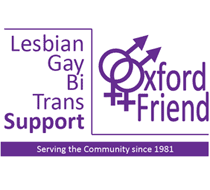As a trainee counsellor, I’ve had plenty of opportunity of late for self-analysis and reflection. Sometimes revelations come at unexpected times, as I discovered recently.

I was playing the part of a client in a role-play scenario for another student on my course when I was struck by a realisation that I didn’t feel that my “counsellor” was able to provide an effective and empathetic response to the particular situations I was describing. It didn’t take me long to spot that the reason I felt this way was her age. Probably the youngest in our class – of whose span of ages I probably sit firmly in the middle – her technical skill is perfectly good, and she’s clearly an intelligent and emotionally-smart young woman… but somehow, I didn’t feel like she would be able to effectively support me.
And this turned out to be somewhat true: the session ended somewhat-satisfactorily, but there were clear moments during which I didn’t feel that a rapport had been established. Afterwards, I found myself wondering: how much of this result was caused by her approach to listening to me… and how much was caused by my perception of how she would approach listening to me? Of the barriers that lay between us, which had I erected?
Since then, I’ve spent a little time trying to get to the bottom of this observation about myself, asking: from where does my assumption stem that age can always be associated with an empathic response? A few obvious answers stand out: for a start, there’s the fact that there probably is such a trend, in general (although it’s still unfair to make the outright assumption that it will apply in any particular case, especially with somebody whose training should counteract that trend). Furthermore, there’s the assumption that one’s own experience is representative: I know very well that at 18 years old, my personal empathic response was very weak, and so there’s the risk that I project that onto other young adults.
However, the most-interesting source for this prejudice, that I’ve found, has been Nightline training.

Many years ago, I was a volunteer at Aberystwyth Nightline. I worked there for quite a while, and even after I’d graduated and moved on, I would periodically go back to help out with training sessions, imparting some of what I’d learned to a new generation of student listeners.
As I did this, a strange phenomenon began to occur: every time I went back, the trainees got younger and younger. Now of course this isn’t true – it’s just that I was older each time – but it was a convincing illusion. A second thing happened, too: every time I went back, the natural aptitude of the trainees, for the work, seemed to be less fine-tuned than it had the time before. Again, this was just a convincing illusion: through my ongoing personal development and my work with Samaritans, Oxford Friend, and others, I was always learning new skills to apply to helping relationships, but each new batch of trainees was just getting off to a fresh start.
This combination of illusions is partly responsible for the idea, in my mind, that “younger = less good a listener”: for many years, I’ve kept seeing people who are younger and younger (actually just younger than me, by more) and who have had less and less listening experience (actually just less experience relative to me, increasingly). It’s completely false, but it’s the kind of illusion that nibbles at the corners of your brain, if you’ll let it.
Practicing good self-awareness helps counsellors to find the sources of their own prejudices and challenge them. But it’s not always easy, and sometimes the realisations come when you least expect them.
